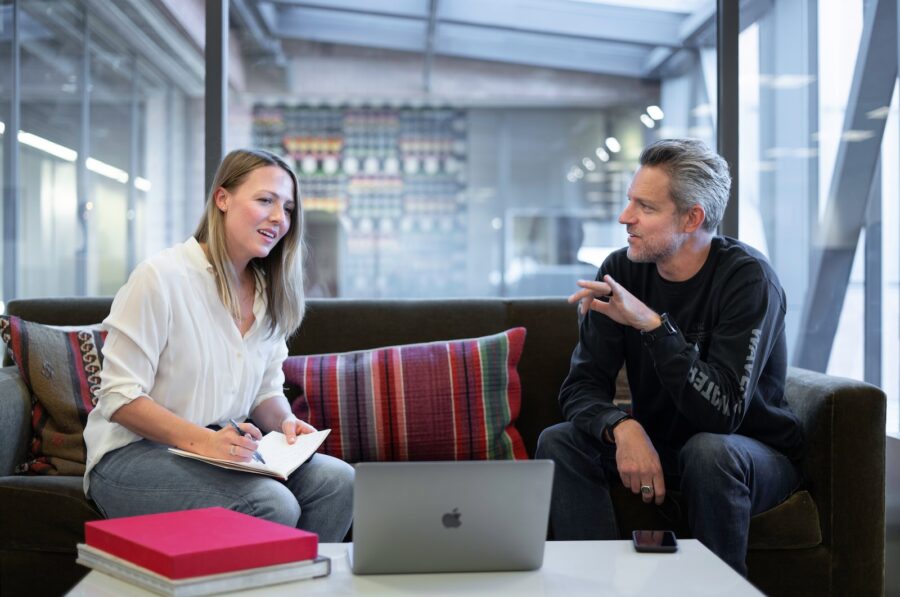Whether you’ve known you’re neurodivergent for a while, recently got diagnosed or just recently realised, getting the support you need is essential. But it can definitely seem daunting to ask for it in your workplace.
There are many steps you can take towards getting that support, some will be more relevant to you than others depending on where you are on your own journey. Before reading the below, remember you deserve that support whichever way you decide to request it.
Clarifying your needs and/or reaching out to some fantastic charities
If you have known you are neurodivergent for a while, you’re likely quite aware of what you need so it will be much easier to lay it out for your organisation. If you haven’t though, you might want first to get a better understanding of your needs.
There are some fantastic charities that can support you as well such as National Autistic Society, ADHD Aware, Bipolar UK, British Dyslexia Association, Tourettes Action etc. It can range from advice to actual mental health support.
Keep in mind your employer has to provide you that support by law
First and foremost, whatever adjustments you are asking for are not only reasonable but it also happens to be the law in the UK… Your employer has to make reasonable adjustments to help you perform your role. It can materialise in many different ways in the physical workspace and in the processes or policies. This can include but is not limited to a fixed desk vs hot desking, more days working from home, providing you with a noise canceling headset, adjusting your hours, providing you with additional softwares/tech…
Chatting with your HR first
Even if you are particularly comfortable with your line manager, you might want to start by dropping a line to your HR team. Not only so there is a record of this but also because they are likely the most aware of everything they can offer. This doesn’t mean all HR employees have a full understanding but at the very least, they will be able to help have those chats and tell you what they’ve done so far.
Request a Workplace Needs Assessment
This is especially important to have that impartial and qualified 3rd party to help figure out exactly what you need and what can be implemented. You don’t need to wait for a formal diagnosis to request this. The way the assessment is conducted means the assessor would be coming to your workplace and potentially discussing with some of your colleagues. This last bit can feel scary so this is more about weighing the pros and cons, and whether you feel you would get the support you need without this.
Pushing for clearer meeting outlines
This one isn’t something most organisations suggest, primarily because they don’t always know. But some small changes to the way meetings are structured can alleviate a lot of the anxiety there too. This would look like always having meeting invites clearly using the 3Ps (purpose: what is the point of this; process: is it a discussion, is someone presenting; payoff: what is expected by the end of the meeting) and even one step further asking exactly for what is needed of you ahead of time and when will be the moment you’re expected to share. At the end of the meeting? Opening the meeting with your notes? Knowing all of this before even going in will make things much easier.
Asking your employer about their DEI initiatives, especially when it comes to neurodivergence awareness
The above are all very practical, but if most of your coworkers don’t have any basic understanding of how small changes can have big impacts for their neurodivergent colleagues, you might have to repeat certain things on a loop (“no I can’t come to the office for that meeting, I’ll be dialing in”, “yes I really need to know what you need from me there”). Has your organisation already done some sessions on neurodivergence awareness? If not, when is it planned for then?
Join other neurodivergent employees within your organisation
This one is easier if you’re part of a fairly large organisation, but not necessarily. It can just be chatting with that person who is openly talking about their life as a neurodivergent person or even creating a neurodiversity employee resource group advocating for neuro inclusion. Salesforce and Ubisoft employees created their own neurodiversity ERG if you need some inspiration.
Look at more inclusive organisations
Last but not least… throughout all of the above you might also realise you would prefer to be working at a more inclusive organisation. In that case, you can have a little google to find which companies have been talking about neurodiversity in the press or look up organisations that have been B corp certified. To get a B corp label, organisations have to go through a tedious process showing their commitment to their people and the planet. So in summary, those companies tend to be more inclusive.
Some organisations are more supportive than others, some line managers are more supportive than others. But keep in mind that again, by law, they have to provide you with the adjustments you need to smash it without the anxiety in your role. You’ve got this!



